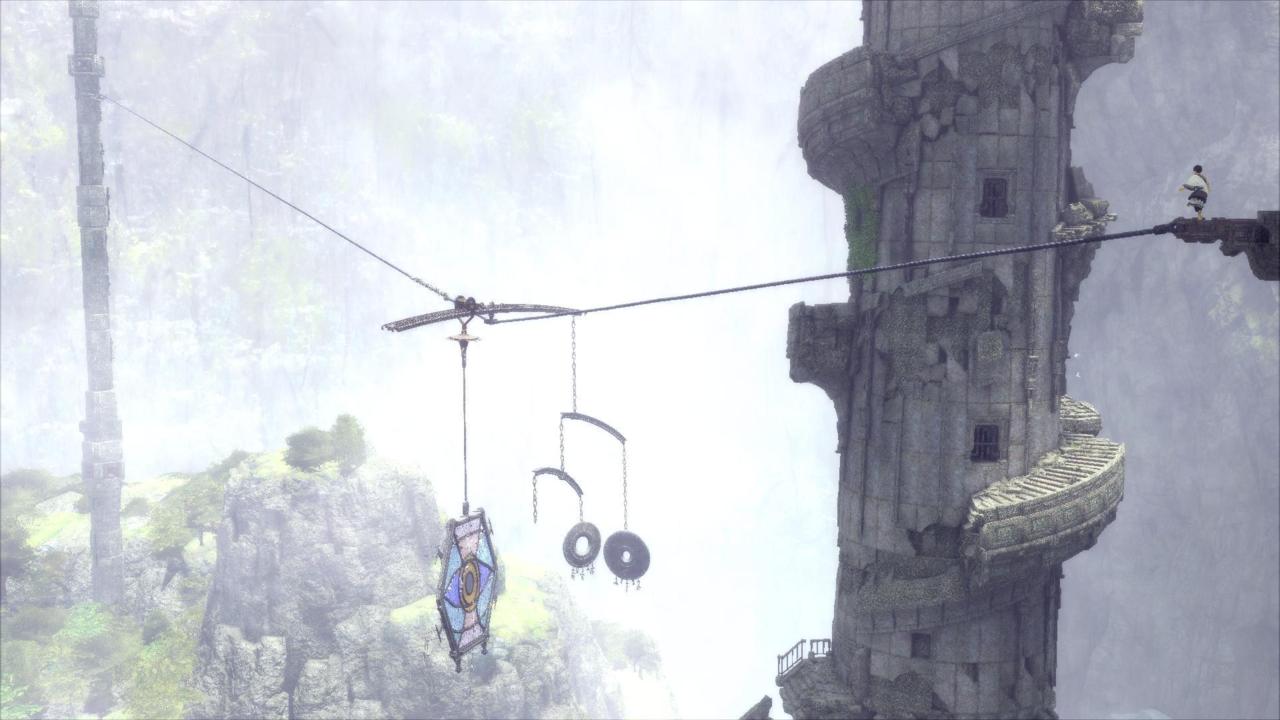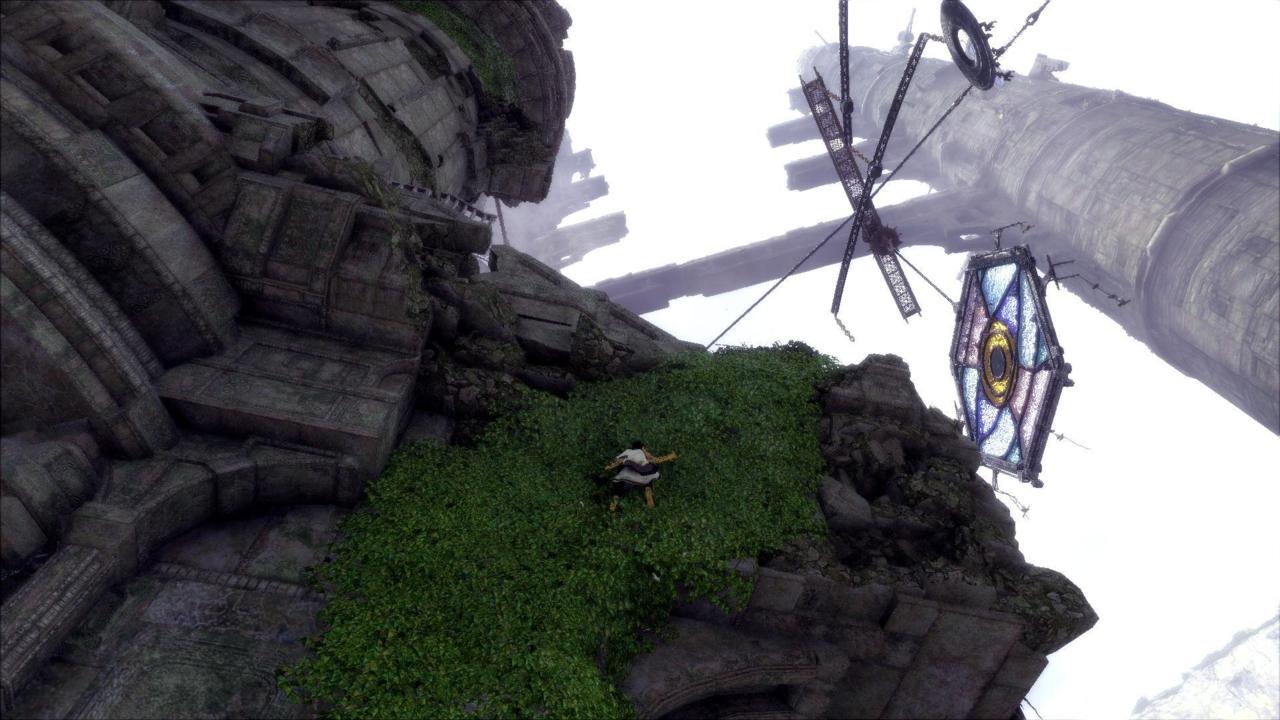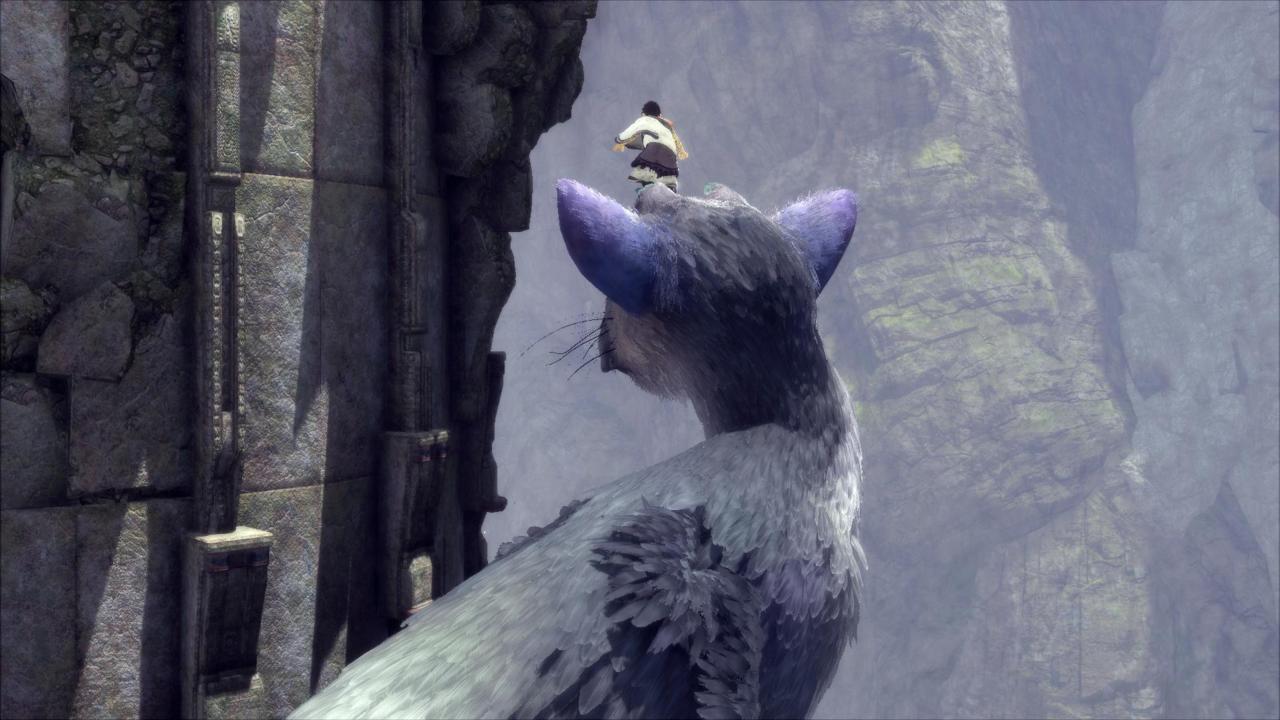Fumito Ueda--the driving creative force behind artful classics Ico and Shadow of the Colossus--is notoriously taciturn. He rarely gives interviews, and when he does, his responses to stock questions generally frustrate or mystify. But in speaking with him about creative process guiding The Last Guardian--his long-delayed yet soon to be released opus--I was struck by his obvious passion for his craft.
Much like Ico and Shadow of the Colossus, Ueda is calm and coy, but there’s an uncanny thoughtfulness behind his words and a sense of knowing in his smile. He is neither brash nor boastful, but his hard-earned understanding of games--of art--is unmistakable. Ueda’s insights into building something “timeless”--both as they apply to The Last Guardian and within the broader context of gaming as a medium--told me a great deal about what his latest game is and, interestingly, what it isn’t.
GameSpot: Alright. I wanted to ask if when Ueda-san is making a game, if he's making those games for his audience or for himself, primarily.
Ueda: Of course I have the audience in mind, or what I imagine the player base for my games could be. But it's not like I pick out a group of people and try to test it against them. If I needed someone to have in front of me, and guide me, or have as a response to what I'm making, that person is me. In essence, what I'm saying is that I am creating something that I want to play and it's a reflection, seeing a reflection of myself and how he would react. It's definitely something that I make for the end consumer to enjoy, of course, but it's a game that I want to play.

In a similar vein, I wanted to ask if the reaction to Ico and Shadow of the Colossus impacted or influenced the creation of The Last Guardian in any way. There's a cult fandom around these games and they're treated as works of art. I was curious if that reaction was part of the mentality that informed the creation of Last Guardian.
You're right. After Ico, we found this fan base that really fell in love with the game. But that didn't put us on the path of making a sequel, 'Ico 2.' We made Shadow of the Colossus--a very different game. But then similar people fell in love with it and more people were attracted to it. We didn't do the expected. We, in fact, provided the unexpected for the next game. I will say that with the Last Guardian, it's some of the expected elements coming out of Shadow of the Colossus and Ico. But I think there are plenty of unexpected elements that will hopefully be seen as such.Yes, though, in a way, each game has influenced us in which direction we go for the next one.
It's interesting to hear that you have somewhat considered The Last Guardian as a bit different and potentially unexpected. I mean, I imagined that's something players will need to experience for themselves--but could you possibly give us an example of what you mean by "unexpected?" What do you think fans wouldn't expect in the Last Guardian?
I can't reveal too much. But for example: Trico is your partner character in The Last Guardian. But Trico is not just your cute partner that's going to be there and help you out. There are real moments that you would expect if you had an animal in your real life. It's not always going to be cute and cuddly and perfect. There are moments when they will be acting out, or they will have their natural behavior come out.

Shifting just slightly here--in playing the demo just now, one thing that struck me was this sense of a lived-in world, that there's a history to this world that is unspoken, but it's still there. How much thought and development was put into creating the world and giving players this sense that they're in something that's bigger than them and bigger than their story?
With all creation--and I'm not just talking about my own games or anything--in anything that is created, I personally feel like there needs to be a ground level, or basis of reality, in that creation. Only when you have established that reality in relation to this creation, you can [expound] upon it, whether it's with a character or a narrative or anything on top of that. Without that base foundation, it's very hard to convey the additional elements.
I know it was quite a short play session, but you already had that sense of being in this world that has been lived in. There's history and what not. That makes me very happy. That's on-point with what we want to deliver. That has always been a very key pillar, an idea that we have wanted to communicate and convey in the game itself.
It sounds like that's a very essential element to the game as a whole, which makes me wonder at what point in the process does that part of the game develop? I mean, do the design and mechanics come first? Does this universe happen separately? Do they happen together? I'm just curious where the universe-building occurs during the development process.
So there's backward engineering here. It doesn't necessarily come first, in the beginning, and we build on top of it. It's the sum of all of its parts. It's everything from environmental design, to level design, to the animation of the character, and in this case, Trico. All of that increases the level of realism that I want in this world that I'm creating. It's the sum of all parts that eventually makes the realism in this world happen, and really come alive. It enhances the level of that believability--that you're in this world.

The game has been in development for approximately 8 years, and in that time, tastes change, expectations changed. I mean, gaming has moved a lot in those 8 years. I was curious if the project has needed to shift or pivot in order to match changing expectations or if it remains completely true to its original intent all along.
I'll give you the short answer: it's the latter. We carried out what we set out to do, and it's the original vision that we now see in this completed game. Sure, over the course of years, a lot of things have changed. But we knew from the very beginning that we wanted to create something that was timeless, something that was going to last a very long time--that was going to hold up for "X" amount of years. I think Sony as a whole understood that from the very beginning. It really did matter for the Last Guardian that we've remained true to the original vision and carried that out.
That seems like such an ambitious goal--to set out to make something that's timeless. How do you even begin to approach something like that? I mean, what makes a game timeless?
No one has confirmed that this is the right thing to do. I can't even tell you that this is the answer, or this is the formula, and if you follow my formula, you'll make a timeless video game. There's no confirmation or affirmation from anyone. It's just my instinct and my gut that's telling me that this is what I hope will become a timeless video game. I ask myself, "What we're making right now, 5 years from today, will that hold up? Will I be happy or satisfied with it looking back?" I guess that's my way to measure whether it could potentially be a timeless creation.
I remind myself to check in with my future self. Is it going to hold up well? Is it going to age well? It's not just the visual side that I look at, but also the theme that's in the game, and the level design that's in the game. Now, I don't know if this will work. Like I said, no one is telling me it's going to. But I feel like that is the factor that helps me make my decisions as to whether it's going to last a long time, and not just become something that is consumed, and digested, before moving on to the next thing.

From a personal angle, why is the goal to create something that is timeless?
The answer is quite simple: because that's what I love. It's not just with games. It's with film. It's with art. Anyone can get excited one day over something and then the next day forget about it. That's everyday life. But I like things that leave a long-lasting impression on me. It becomes a part of me. It stays with me. I can maybe grow with it. That's the type of stuff that I like. It's important that I am doing that for my own creations as well.
My last question: in all three of the games that we've talked about--Ico, Shadow of the Colossus, The Last Guardian--partnerships have played a very crucial role. I was curious if that was a conscious choice, to create those partnerships, and whether you think it was delivered or not in all three games.
I actually started my career not in games, but in arts and film. But what happened there stuck with me when I went to transition over to games. And I was also working with a new medium. And there are things you can do in games that you can't do in other things. I can have a relationship between my main character and an AI character, and have that relationship, communication, partnership, bond, whatever you want to call it--you can't have that outside of games. You can't execute that in a film. You can't execute that in other forms of art. I just felt like, "Okay, if this is the one thing that I can do because I'm now working in video games, I'm going to pursue that."
I ended up really honing in on that and as a result, it's now my third game. As a result, it's really taken a path of its own. Maybe one day I'll discover something else that can only really be done well in games. If there is a moment like that, maybe I'll go down that path. But so far, this is the strongest point I found.
